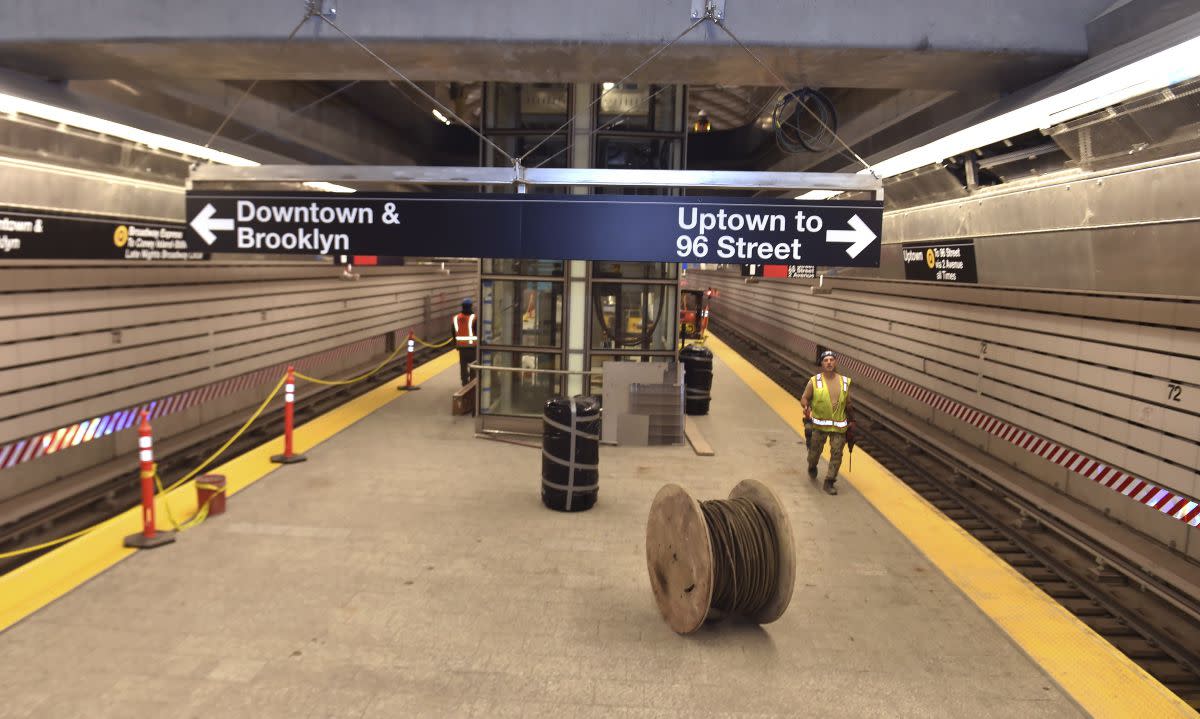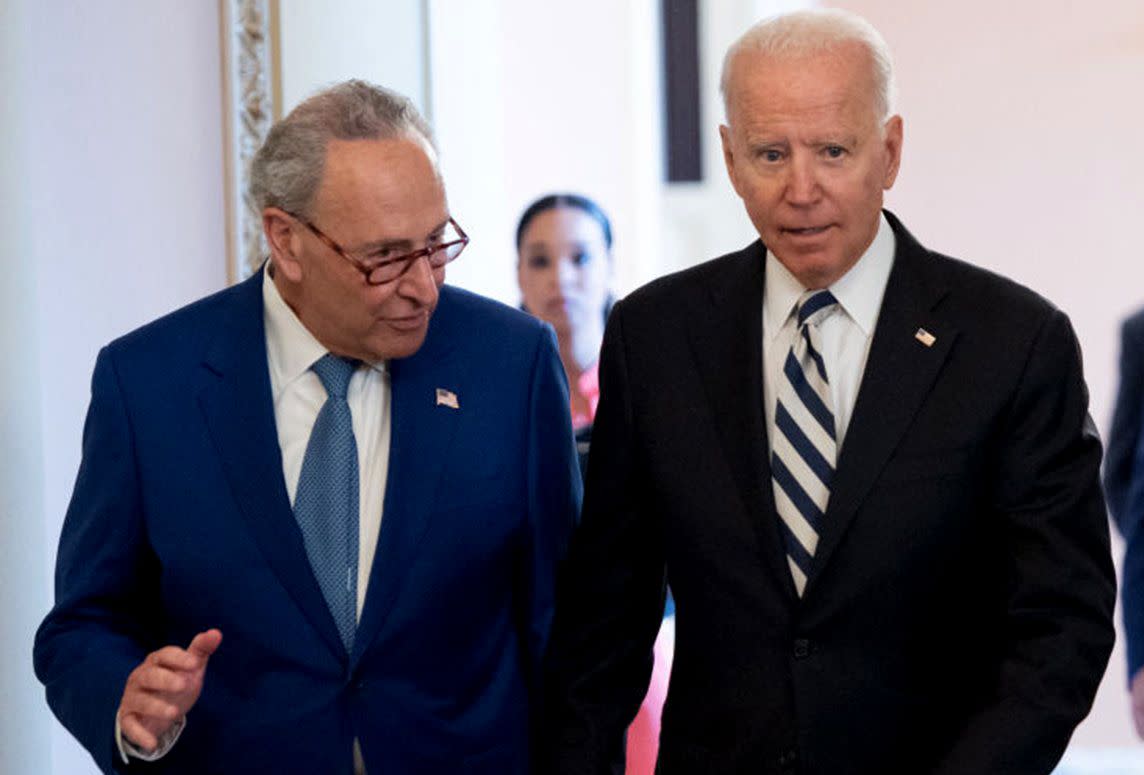Biden to propose $400M for Second Ave. subway extension, Schumer and Espaillat reveal
The long-promised project to extend the Second Ave. subway to Harlem will get $400 million in the annual budget President Biden is set to propose Monday, according to New York Democrats Sen. Chuck Schumer and Rep. Adriano Espaillat.
After years of delays, the money will go to engineering and construction for Q train stops up to 125th St., the pair said.
Shovels will “hopefully” be in the ground next year, according to a Schumer spokesman.
The funding allocation “means we’re out of the station and heading on the track,” the Senate Majority Leader told the Daily News on Sunday.
“Once you have $400 million allocated, that’s enough to start construction, and it means all systems are go,” he said. “There’s very little that can stand in the way.”
The MTA previously requested $3.4 billion in total federal funding for the Second Ave. subway extension, which has an estimated $6.9 billion price tag. Last year’s infrastructure package could be tapped for part of the remaining costs, Schumer said.
Long a city fantasy, the Second Ave. line finally opened with three stops from 72nd St. to 96th St. in 2017 after decades of delays.
But areas to the north, in East Harlem and Harlem, remain a “transit desert,” said Schumer and Espaillat.
New stops reaching to 125th St. will “not only make life more convenient for [residents], but it’s going to make it much easier to get to jobs,” Schumer asserted.
According to Espaillat, whose district includes the proposed subway stops, the extension will connect East Harlem and Harlem to areas near and far.
“This is a project that has implications for the entire region. It connects Harlem to the rest of the world,” said the lawmaker, noting the extension will also provide easier access to Metro-North trains, buses to LaGuardia Airport and other transit networks.



Earlier this year, Schumer secured $100 million in federal funding for engineers to assess the scope of the project and determine construction specifics. That process is ongoing, he said.
The expected $400 million allocation “guarantees that you move forward to the full funding phase,” Espaillat added. “That’s the real important news here — that this is moving forward.”
He and Schumer said they’ve spent months urging the White House to fund the Second Ave. subway extension.
“I communicated, I would say, umpteen times to [Transportation] Secretary [Pete] Buttigieg,” said Schumer. “I mentioned this to the President himself.”
Espaillat said he also “pounded the pavement” on the issue, repeatedly speaking with Buttigieg and Biden, along with New York Gov. Hochul, who supports the project.
Biden’s budget for fiscal year 2023 will mark a strong contrast with the Trump years, when the 45th commander-in-chief balked on a promise to former Gov. Andrew Cuomo to provide billions for the Second Ave. subway extension, sources told The News last year.
But by including local transit in emergency pandemic spending packages, Congress helped the MTA avoid having to tap construction funding to keep the system going, Schumer said.
Along with the subway construction cash, Biden’s budget will include a minimum tax of 20% on households worth more than $100 million, according to a fact sheet the White House released over the weekend.
The measure is intended to target billionaires — sure to be a contentious proposal as members of Congress face tough elections across the country.
